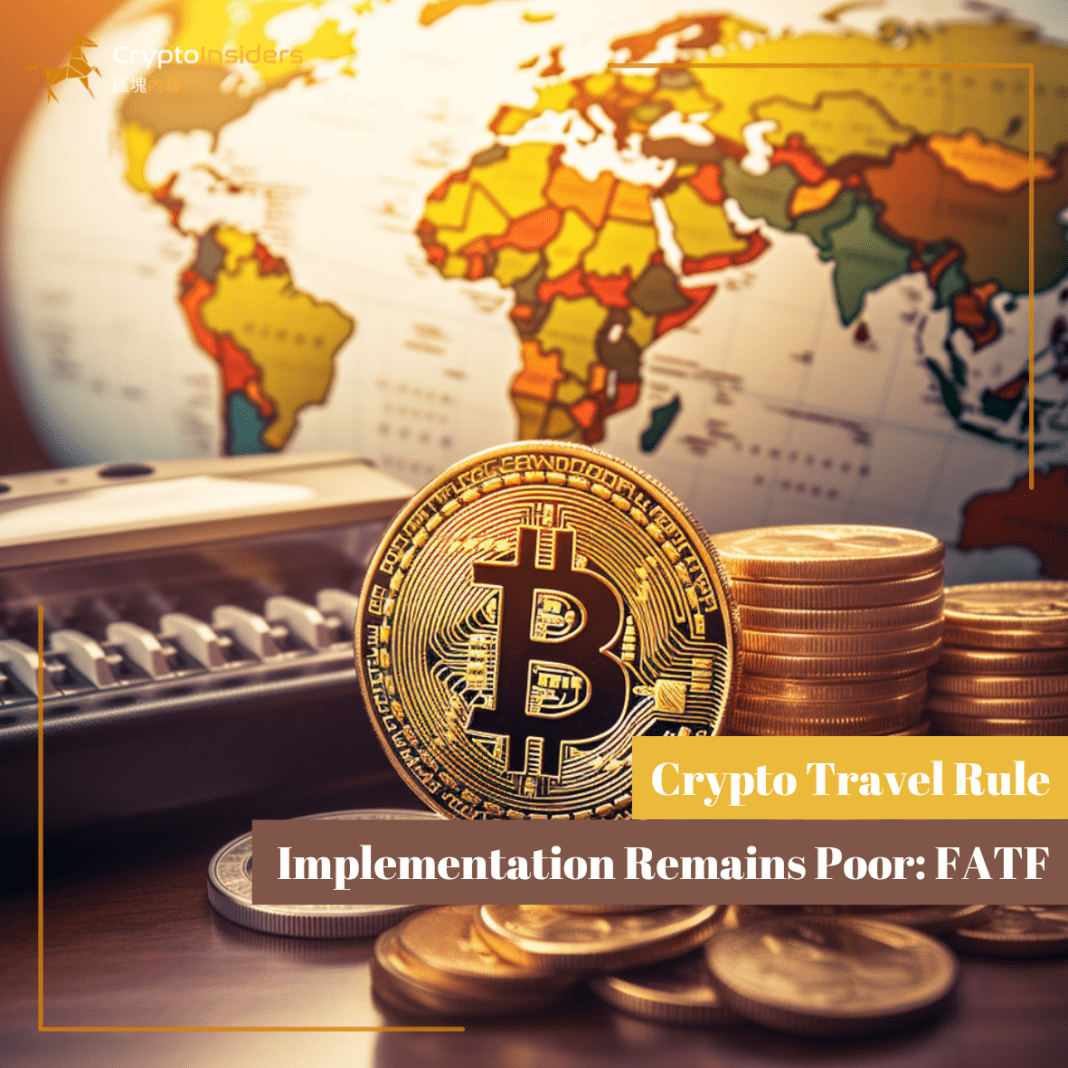Introduction
The Financial Action Task Force (FATF) is a global regulatory body that sets standards for anti-money laundering (AML) and countering the financing of terrorism (CFT). In 2019, the FATF introduced the “travel rule” for virtual asset service providers (VASPs) to combat money laundering and terrorist financing.
The travel rule requires VASPs to collect and share customer information when conducting transactions exceeding a specified threshold. The threshold varies by jurisdiction but is typically around $1,000.
Poor Compliance with FATF Regulations
Despite the introduction of the travel rule, compliance remains poor in many jurisdictions. According to a recent report by Crystal Blockchain, only 10% of the top 120 cryptocurrency exchanges have implemented the travel rule.
The report also found that while some exchanges have implemented the travel rule, the quality of compliance varies. Many exchanges only collect the minimum required information, such as name and address, and do not verify the identity of their customers or the origin of the funds.
Challenges to Implementation
One of the challenges to implementing the travel rule is the lack of a standardized approach. VASPs must comply with regulations in multiple jurisdictions, each with their own requirements and interpretations of the FATF guidance.
Another challenge is the lack of interoperability between VASPs. Without a standardized approach, it is difficult for VASPs to communicate and share customer information with each other.
Related?Media Outlets Challenge Privacy Policy of FTX Customers
Potential Consequences of Non-Compliance
Non-compliance with the travel rule can result in reputational damage, fines, and even criminal liability. In 2020, the US Department of Justice fined BitMEX $100 million for violating AML regulations, including the travel rule.
Conclusion
The implementation of the travel rule remains a challenge for the cryptocurrency industry. While some exchanges have made efforts to comply, many are still lagging behind. The lack of a standardized approach and interoperability between VASPs is a significant hurdle to overcome.
As the FATF continues to monitor compliance, it is essential for VASPs to prioritize the implementation of the travel rule to avoid potential consequences.





